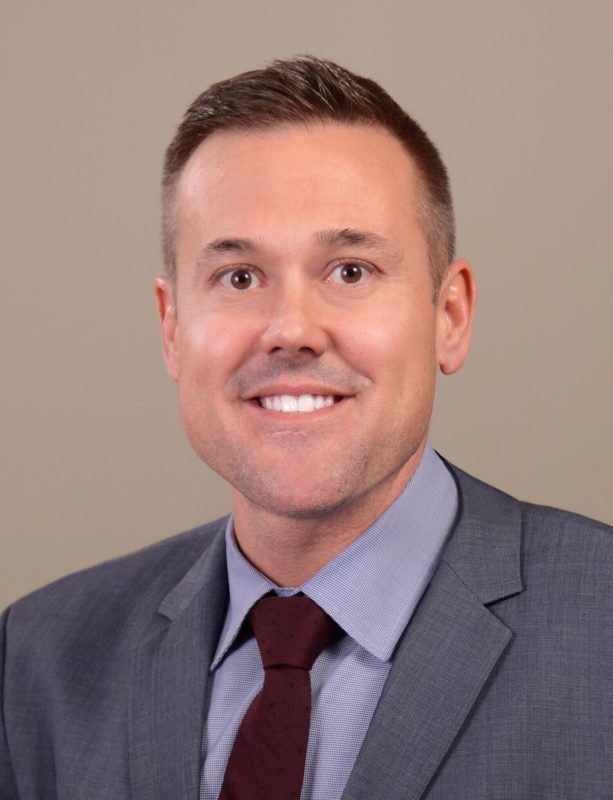
The finalists for WashingtonExec’s Pinnacle Awards were announced Oct. 8, and we’ll be highlighting some of them until the event takes place virtually Nov. 12.
Next up is Marketing Executive of the Year (Large Company) finalist Milo Speranzo, who’s director of North America public sector marketing at Dell Technologies. Here, he talks key achievements, pride in his organization and professional risks.
What key achievements did you have in 2019/2020?
As the federal government faced the complexities of operating through a pandemic, my team and I worked to provide the technology agencies needed to function and thrive. The work agencies had to do to transition the entire workforce to a new setting, while continuing the government’s critical missions, is nothing short of remarkable. Supporting that transition was a major accomplishment.
As a marketer, I noticed that business decision-makers — not traditional IT decision-makers — were making more procurement decisions. To support them at this time, we needed to change how we communicated. We refocused efforts to help IT decision-makers engage and guide members of their organizations who were receiving stimulus dollars, so they could pursue the most strategic IT investments and communicate technology’s role in meeting mission objectives to agency decision-makers.
We armed IT decision-makers with the necessary knowledge to converse with the business decision-makers managing government recovery and stimulus funding, acting as the partner public sector organizations needed to continue their nationally critical missions.
What has made you successful in your current role?
Dell Technologies’ customer commitment and dedication to helping our public sector agency customers achieve their missions sets the company apart. This focus has also acted as a guiding principle for marketing efforts and has without question helped me succeed in my role.
Our approach to supporting government through the pandemic is a great example, but just one that illustrates the value of being a partner to the government and keeping agency mission needs as the number one priority in how we connect and communicate.
What are you most proud of having been a part of in your current organization?
I am incredibly proud of our fast pivot in light of the COVID-19 pandemic. This allowed us to support federal customer needs immediately when they needed new technologies and solutions to operate in the remote work reality.
Our efforts positioned Dell Technologies as a leader in its commitment to government customers, resulting in the company’s support of federal recovery committees, including efforts led by the White House. Ultimately, Dell Technologies served as one of the top 10 supporters of government COVID-19 response contracts, according to an April 2020 analysis by Bloomberg Government.
Technology is so critical to enabling telework and allowing productivity to continue through the pandemic, I’m proud we were able to fill this role.
What are your primary focuses areas going forward, and why are those so important to the future of the nation?
As we move through the end of 2020 and into 2021, my team and I are continuing to focus on reaching less engaged audiences, doubling down on enabling IT decision-makers and building on the successes, relationships and customer commitment that we’ve worked hard to create thus far.
These are all important focus areas as they will allow Dell to offer greater support for government, both through new and current customers, and by deepening our support and partnership with those we’ve supported for years.
Digital transformation is a journey that we’ll continue on together, one that’s been accelerated and modified to address pandemic-driven changes.
How do you help shape the next generation of government leaders/industry leaders?
I hope to shape the next generation of leaders by teaching them to not be afraid of failure, but to embrace it. I try to ensure that my team and mentees know to expect disappointment from time to time. If they are not failing, they are not pushing the boundaries of creativity necessary to succeed at the highest levels of marketing and business. They should be proud of their failures and wear them as a badge of honor that shows an attempt to do something forward thinking.
The key is the age-old adage of learning from challenges and embracing the project not as a failed attempt, but as the first phase on a groundbreaking journey to success.
Which rules do you think you should break more as an industry leader?
Rather than a rule to break, moving into 2021, I plan to adopt and utilize more cutting-edge digital techniques within the public sector. All too often, I find myself thinking an approach won’t work for the federal government, but we are moving quickly toward an age where government leaders are consuming information in a similar manner to their commercial counterparts. So, this year I’m asking, “can we tweak this strategy to be relevant,” instead of saying “no” before I’ve even tried.
What’s the biggest professional risk you’ve ever taken? What’s one key thing you learned from a failure you had?
Leaving my job and starting a business. I was petrified when I took this leap and remember vividly the pit in my stomach after the first month of being on my own. In the early months and years of leading my consulting firm, I made many significant strategic and operational mistakes. But I learned the value of quickly identifying a mistake, pivoting, learning from the failure and not repeating it. Doing this helped me to grow not only as a business owner at the time, but continually throughout my career.
Looking back at your career, what are you most proud of?
Taking a chance and betting on myself. Building a business is honestly something I am not interested in doing again, however, what I learned in building it and eventually selling it has blessed me with so many business and life lessons that I still incorporate into my role today.

